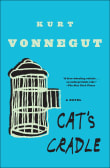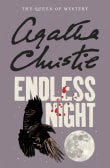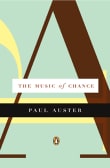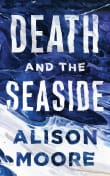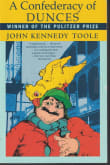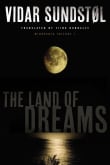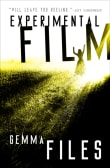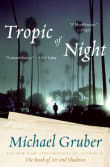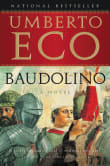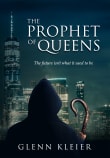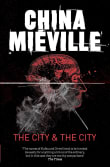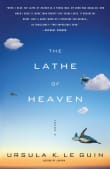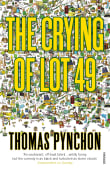Foucault's Pendulum
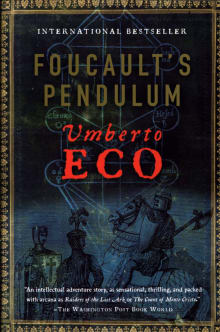
Book description
Three book editors, jaded by reading far too many crackpot manuscripts on the mystic and the occult, are inspired by an extraordinary conspiracy story told to them by a strange colonel to have some fun. They start feeding random bits of information into a powerful computer capable of inventing connections…
Why read it?
5 authors picked Foucault's Pendulum as one of their favorite books. Why do they recommend it?

Overstuffed and labyrinthine, Eco’s novel dives into a highly academic rabbit hole of conspiracy theories that toss me head over heels like a strong wave in the ocean. It reads a bit like The DaVinci Code written by Thomas Pynchon (who we’ll get to in a minute), the paranoias stemming from historical entities like the Knights Templar and the Rosicrucians.
I’d be hard-pressed to provide an accurate summary of events, but it all makes for a pleasantly bewildering reading experience.
From Patrick's list on absurd humor, twisty plot, and a beating heart.

I’m fascinated with why people believe what they do and how those beliefs can sometimes be incredibly hard to change. In this book, three wry and jaded book publishers decide to out-conspire the conspiracy theorists—and succeed all too well.
The result is a brilliant labyrinth of a book that has always reminded me of one of those complicated contraptions with gears and levers, where all you can do is stare, fascinated, at the intricacy of the clockwork unfolding in front of you.
I love how history is wound through the entire plot, using real events and characters to tie the…
From Gordon's list on making you question how you see the world.

I have read Foucault’s Pendulum several times and never tire of reading it again. The book takes me – through the main character, Casaubon – on a quest, delving into a place where the maybe possible, even probable, becomes reality and into that mysterious world where conspiracy theory laps around the edges of the real world.
It is a thought experiment, of sorts, and the perfect example of being careful what you wish for… or expect… or deem to be true. It’s also a fantastic read – as you might expect from Umberto Eco.
From Martin's list on indulge the metaphysical mind and cultivate a mystery.
If you love Foucault's Pendulum...

All of Eco’s novels defy easy description, this one most of all. It is a post-modern dystopia masquerading as supernatural suspense. A conspiracy thriller that feels more like an epic quest fantasy. Cosmic horror in which the greatest monster of all is the human imagination. It starts with an occult conspiracy designed by artificial intelligence. Casaubon knows it’s fiction, but that doesn’t stop the conspirators from hunting him. The Knights Templar, Comte de Sainte-Germaine, ritual spirit possession, the alchemical homunculus, witches, spiritualist mediums, and the King of the World, all make appearances. Eco is a wizard disguised as a troubadour…
From Adrian's list on crime with supernatural overtones.

Long before The Da Vinci Code, Umberto Eco wrote this epic novel featuring the Knights Templar. It's the story of the employees of a small publishing house, who for their own amusement dream up a wild conspiracy theory connecting multiple historical events. It's all fun and games until they realise there may be some truth to their theory. Soon their lives are in danger.
From Alex's list on thrillers that will make you question reality.
Want books like Foucault's Pendulum?
Our community of 12,000+ authors has personally recommended 100 books like Foucault's Pendulum.

